Find Help
More Items From Ergsy search
-
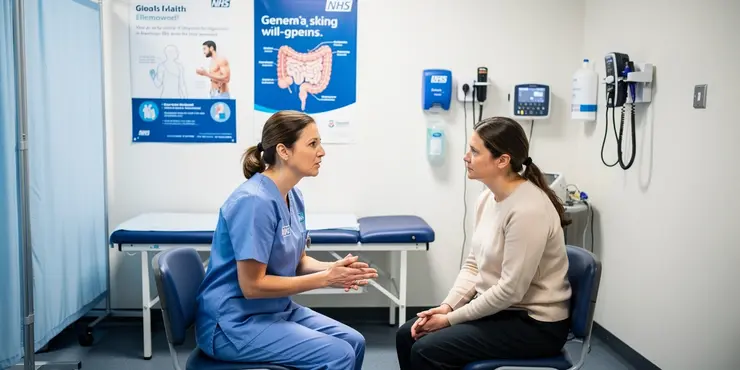
Symptoms of irritable bowel syndrome (IBS)
Relevance: 100%
-
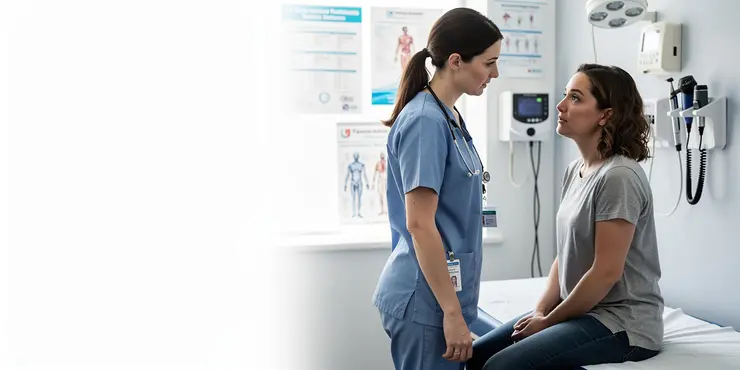
What is irritable bowel syndrome (IBS)?
Relevance: 99%
-
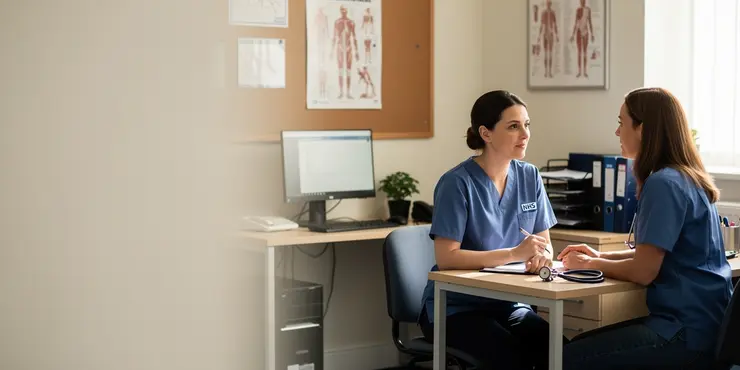
About irritable bowel syndrome (IBS)
Relevance: 98%
-
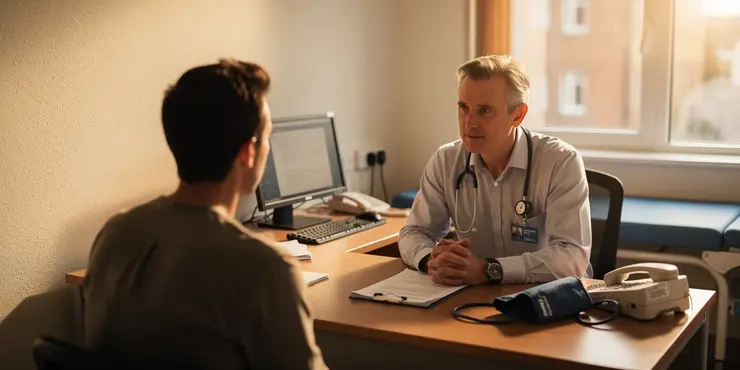
Diagnosing irritable bowel syndrome (IBS)
Relevance: 98%
-
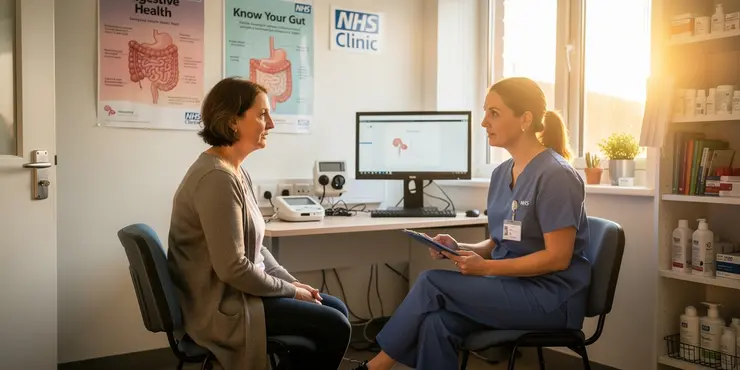
About irritable bowel syndrome (IBS)
Relevance: 98%
-
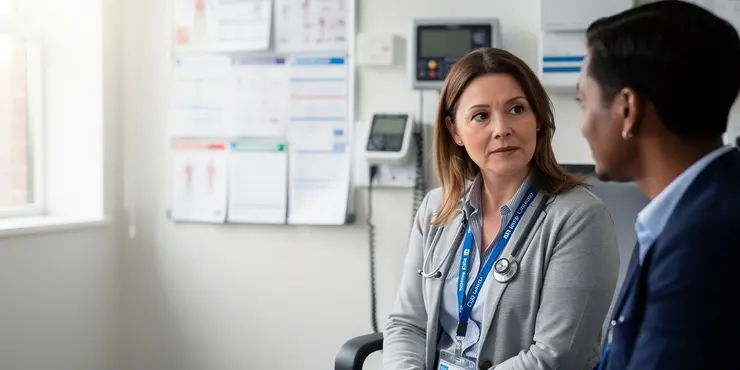
What is irritable bowel syndrome (IBS)?
Relevance: 97%
-
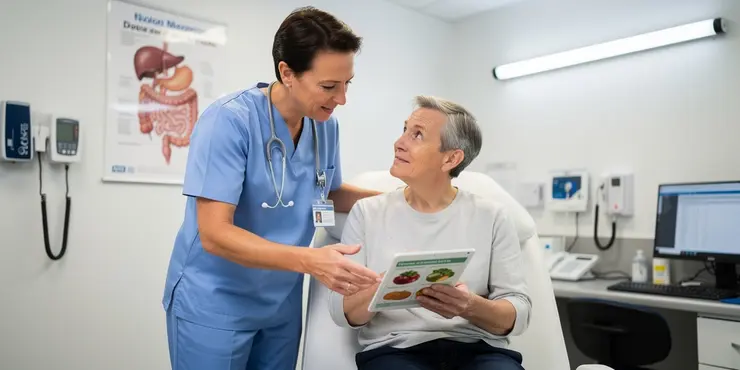
Treating irritable bowel syndrome (IBS)
Relevance: 96%
-
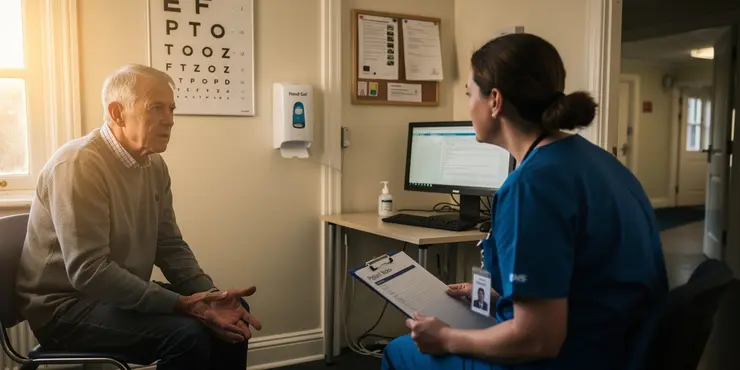
Causes of irritable bowel syndrome (IBS)
Relevance: 95%
-
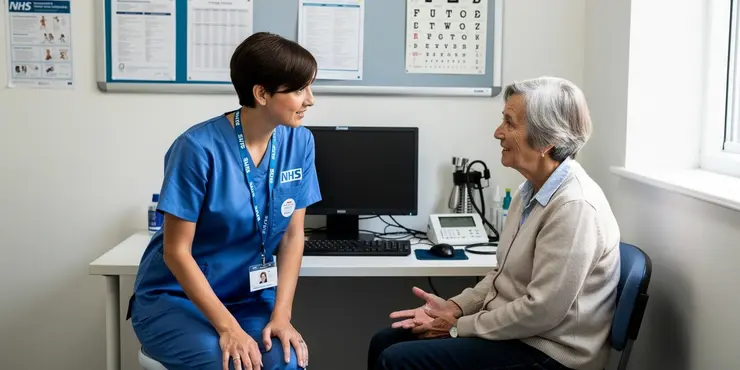
Causes of irritable bowel syndrome (IBS)
Relevance: 94%
-
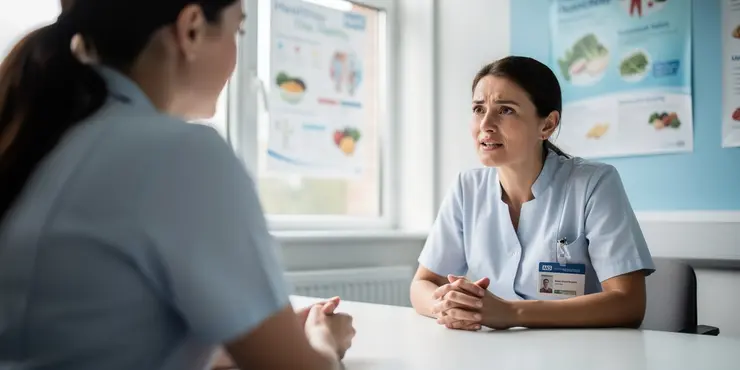
Treating irritable bowel syndrome (IBS)
Relevance: 91%
-

Symptoms of irritable bowel syndrome (IBS)
Relevance: 90%
-
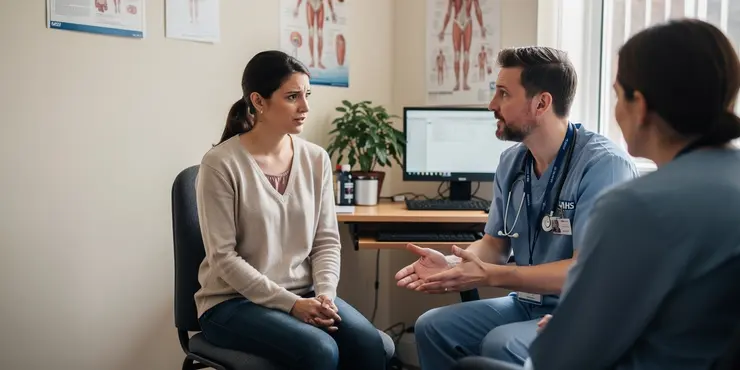
IBS and your mind: Is there a connection?
Relevance: 58%
-
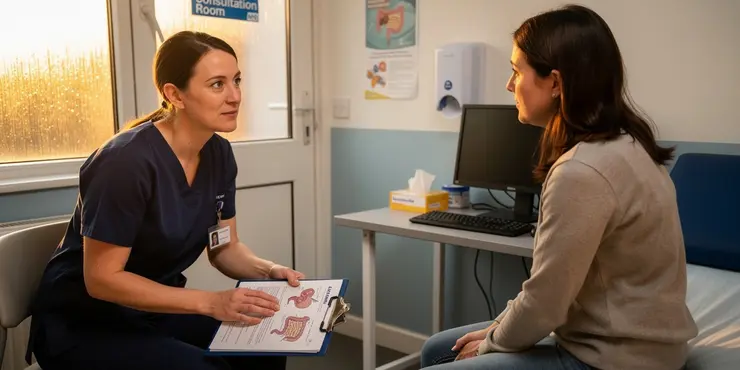
IBS and your mind: Is there a connection?
Relevance: 58%
-
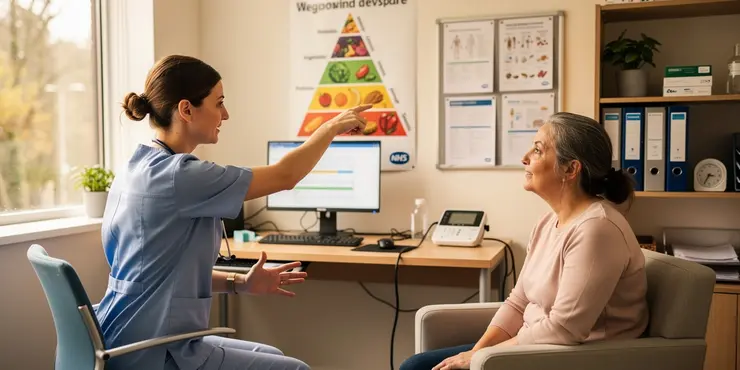
Does your diet affect IBS?
Relevance: 48%
-
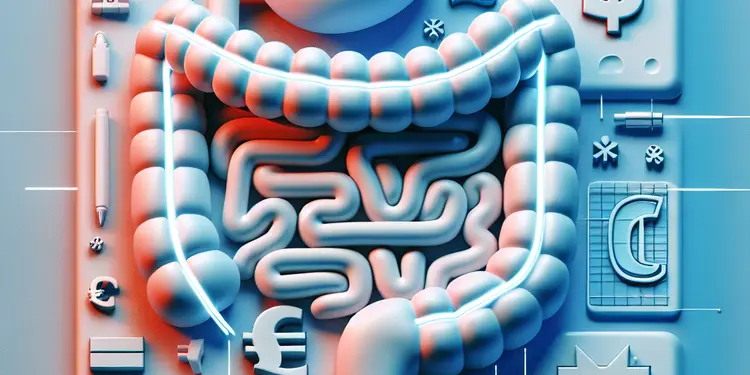
Are there specific gut-related diseases that become more common with age?
Relevance: 33%
-
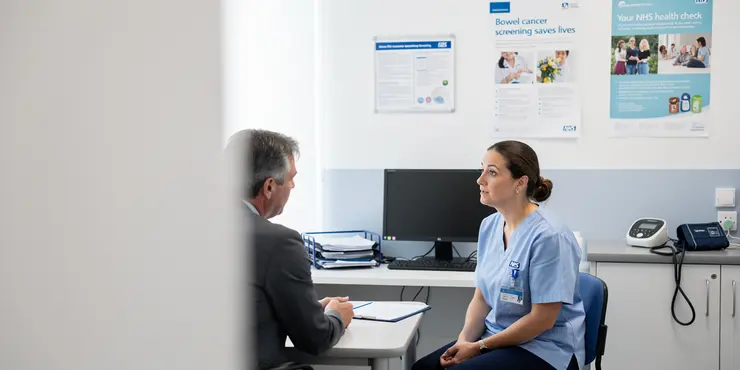
Taking a Genetic Family History - The Conversation (Bowel Cancer)
Relevance: 31%
-
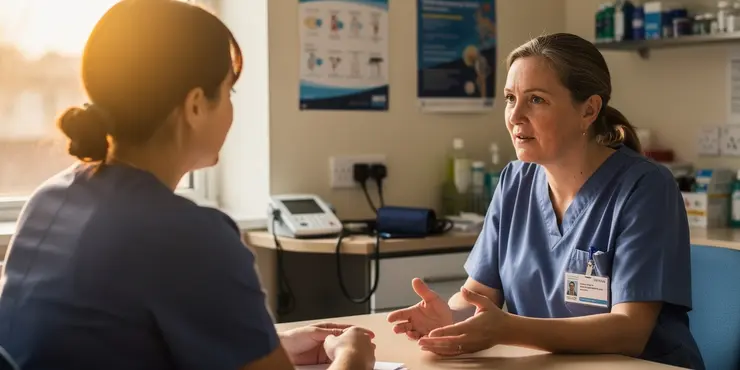
What are the side effects of bowel cancer treatment?
Relevance: 31%
-

Why is there a surge in bowel cancer?
Relevance: 31%
-
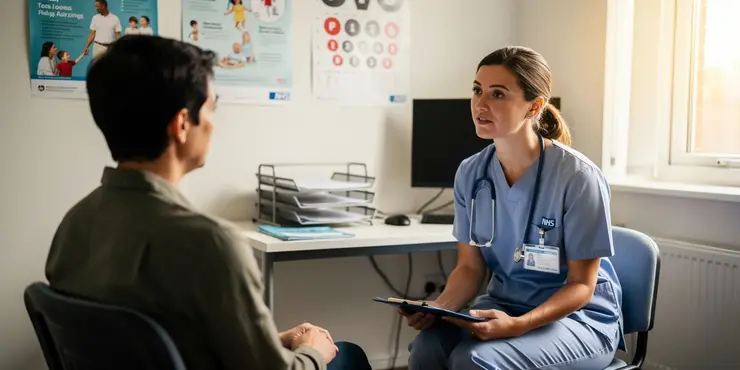
How does family history affect the risk of bowel cancer?
Relevance: 30%
-
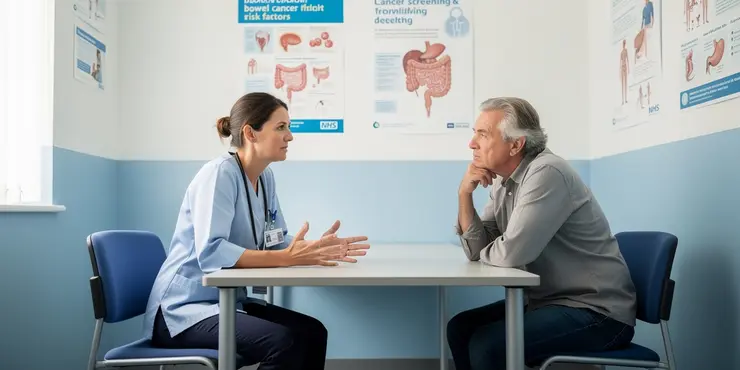
What are the risk factors for bowel cancer?
Relevance: 30%
-
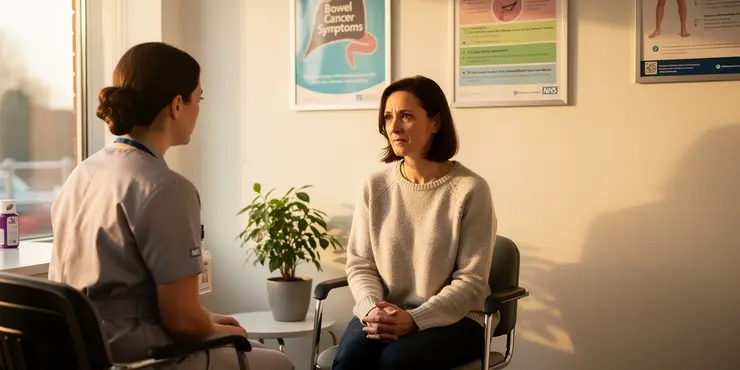
What is Bowel Cancer?
Relevance: 29%
-
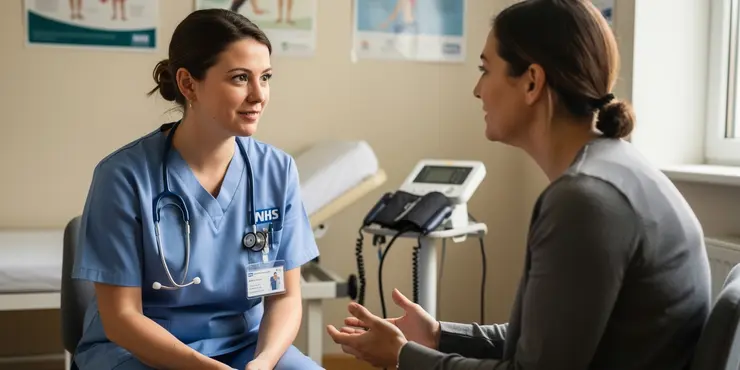
How common is bowel cancer?
Relevance: 27%
-
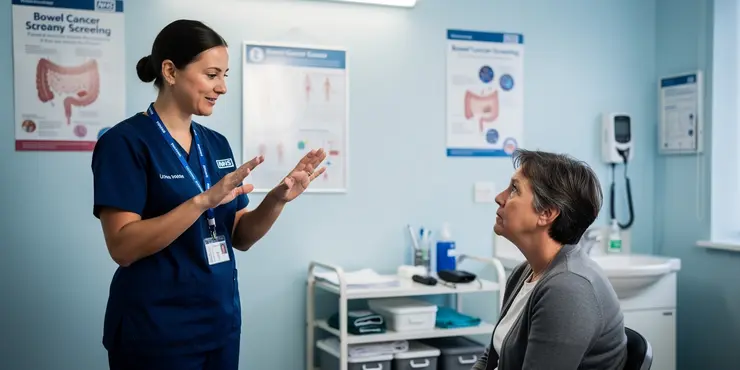
Learn about bowel cancer (British Sign Language version)
Relevance: 27%
-
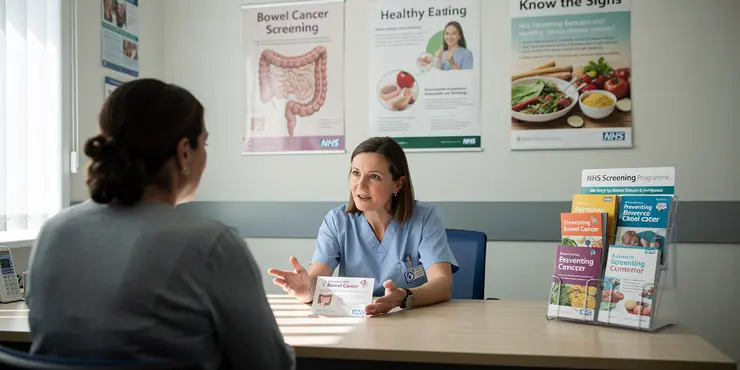
Can bowel cancer be prevented?
Relevance: 27%
-
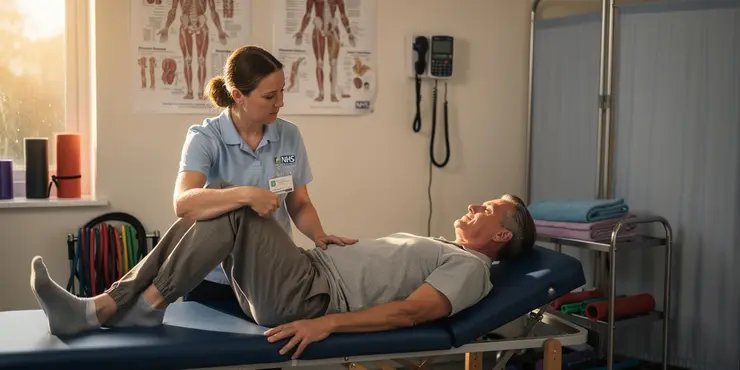
Exercises for sciatica: piriformis syndrome | NHS
Relevance: 26%
-
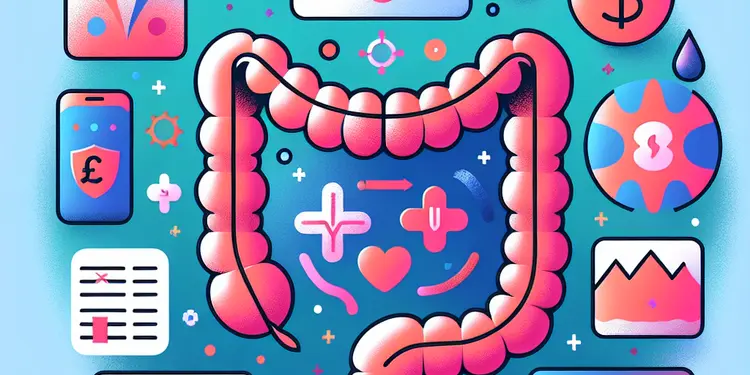
What factors are contributing to the increase in bowel cancer cases?
Relevance: 26%
-
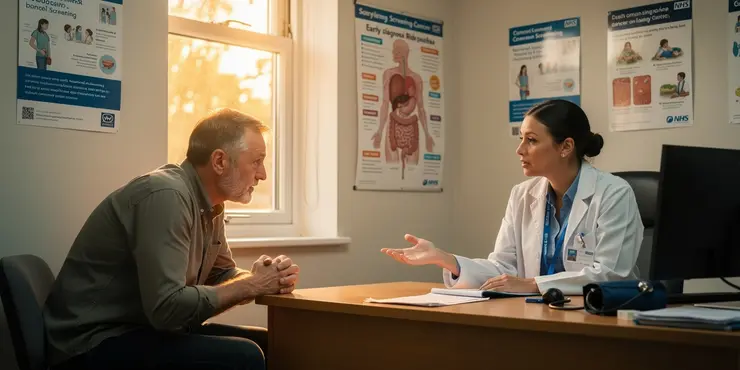
How is bowel cancer diagnosed?
Relevance: 25%
-
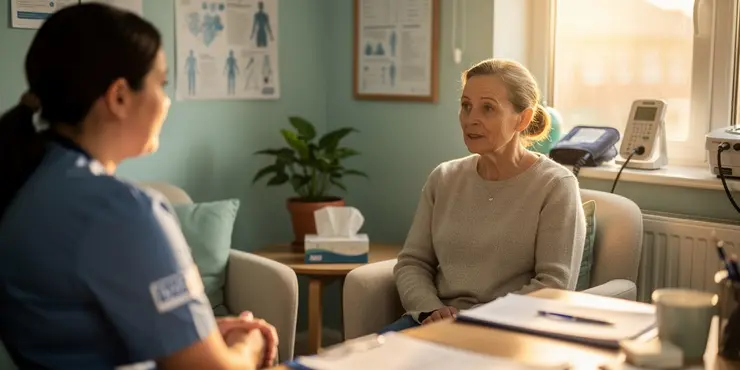
What is Cushing's syndrome?
Relevance: 25%
-

Is diet linked to the rise in bowel cancer?
Relevance: 25%
-
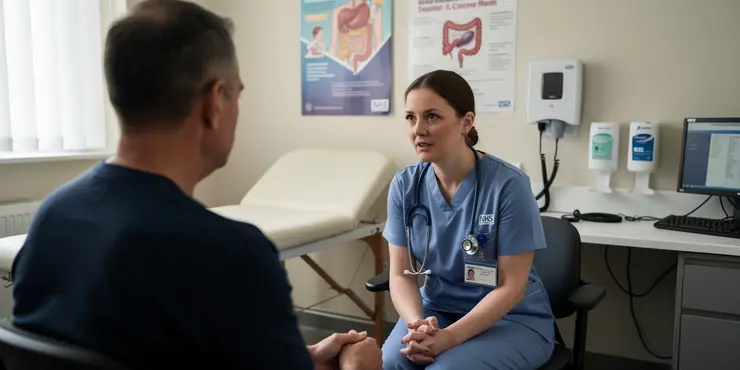
What is the survival rate for bowel cancer?
Relevance: 25%
-
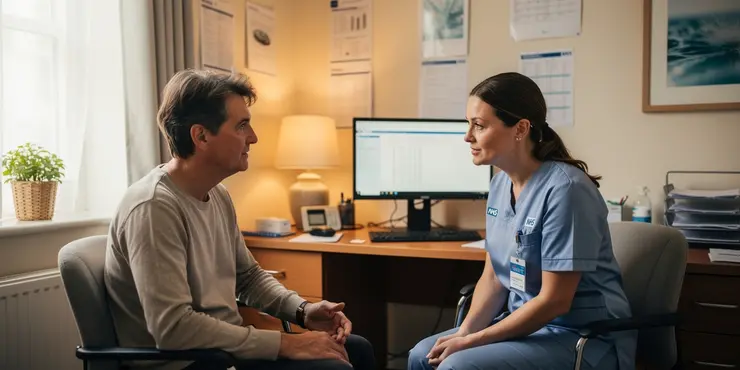
Munchausen's syndrome | NHS
Relevance: 25%
-
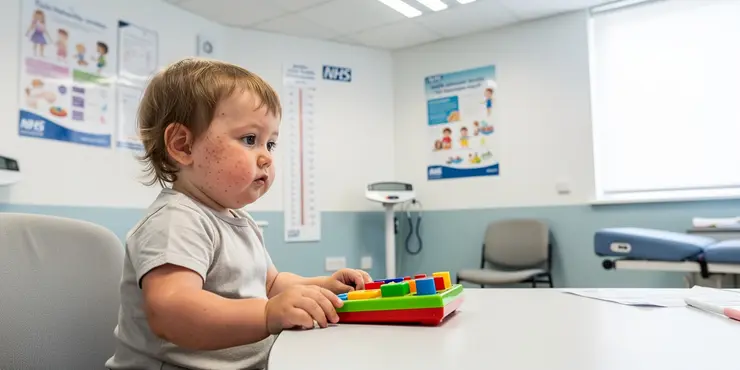
Prader-Willi Syndrome | NHS
Relevance: 24%
-

Are younger people being diagnosed with bowel cancer more frequently?
Relevance: 24%
-
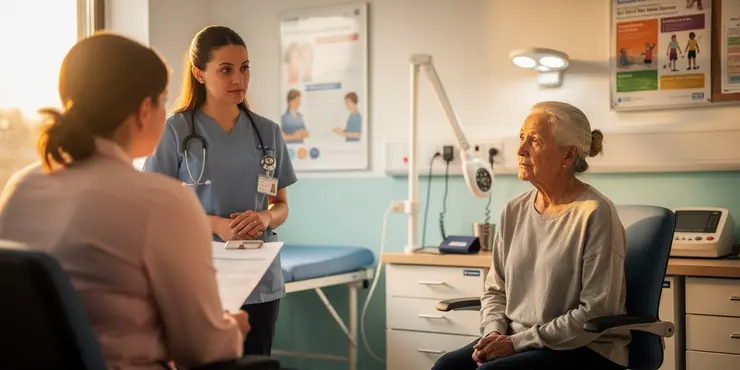
Bowel cancer - Symptoms and signs to look out for
Relevance: 24%
-
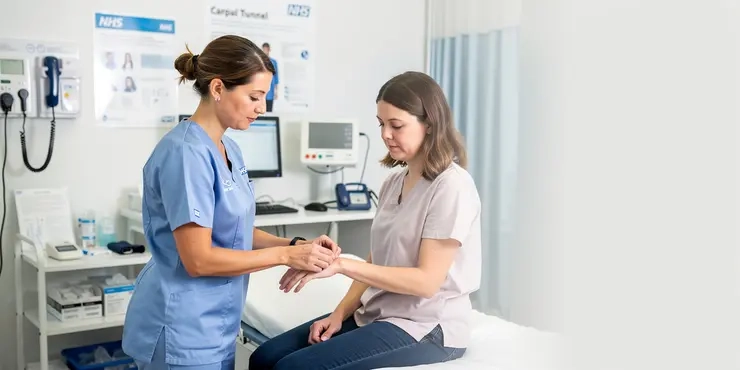
Carpal Tunnel Syndrome
Relevance: 24%
-
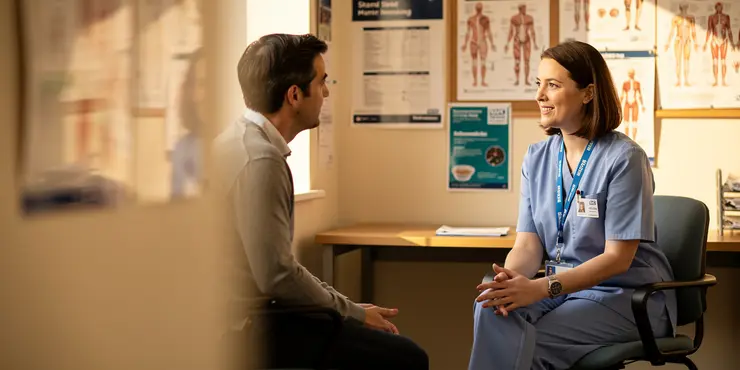
What treatment options are available for bowel cancer?
Relevance: 24%
-
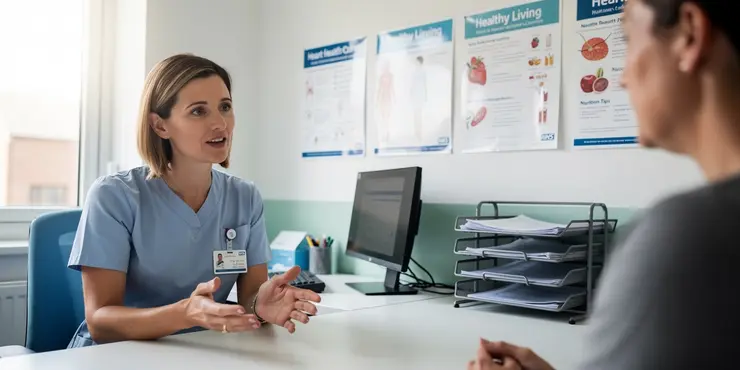
What lifestyle changes can help lower the risk of bowel cancer?
Relevance: 23%
-
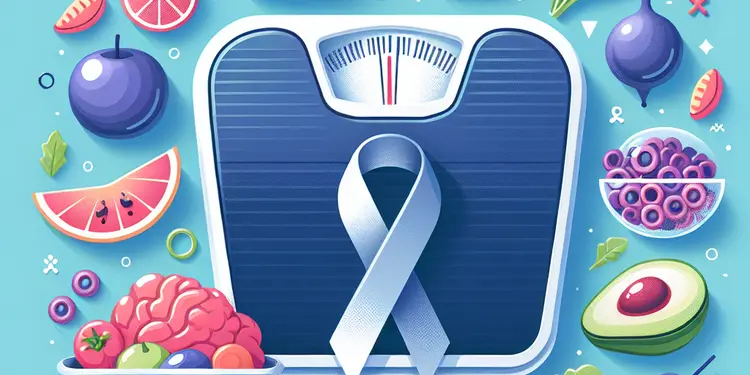
How does obesity affect bowel cancer rates?
Relevance: 23%
-
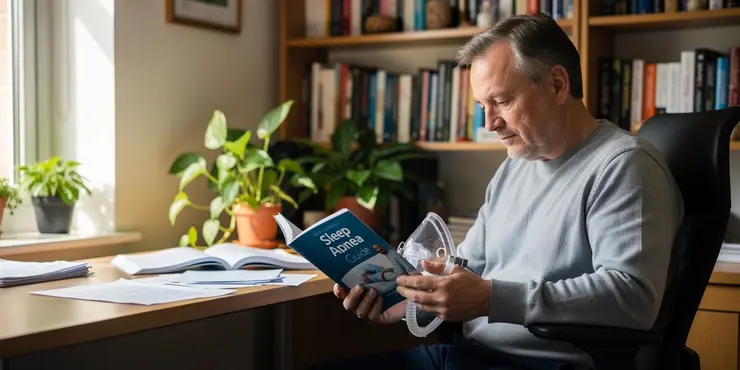
What is complex sleep apnea syndrome?
Relevance: 23%
-
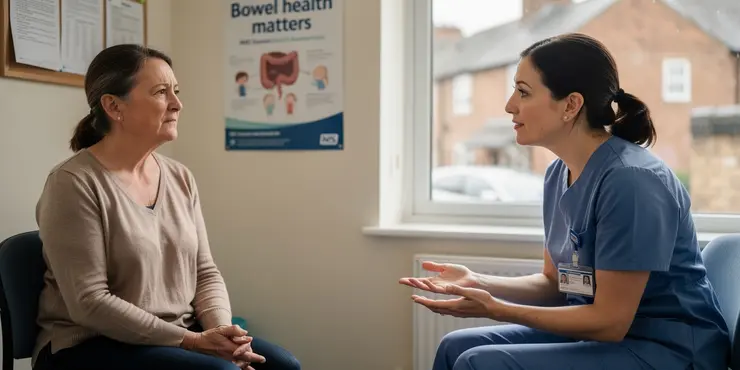
Can bowel cancer spread to other parts of the body?
Relevance: 23%
Diagnosing Irritable Bowel Syndrome (IBS)
Understanding IBS
Irritable Bowel Syndrome (IBS) is a common gastrointestinal condition characterized by a group of symptoms, including abdominal pain, bloating, and changes in bowel habits such as diarrhea or constipation. Identifying IBS can be complex, as symptoms often overlap with other digestive disorders. Early diagnosis and management are key to improving quality of life for those affected.Initial Consultations
A visit to your GP (General Practitioner) is usually the first step in diagnosing IBS. Your GP will take a detailed medical history and perform a physical examination. They will inquire about your symptoms, their duration, and any potential triggers. It is useful to keep a symptom diary to provide your GP with an accurate picture of your condition.Diagnostic Criteria
In the UK, the Rome IV criteria are often used to diagnose IBS. According to these guidelines, a patient must have experienced recurrent abdominal pain on average at least one day per week in the last three months, associated with two or more of the following: - Pain related to defecation - Change in stool frequency - Change in stool form or appearanceExclusion of Other Conditions
Before confirming an IBS diagnosis, other conditions with similar symptoms, such as inflammatory bowel disease (IBD), coeliac disease, and colon cancer, must be ruled out. Your GP may order blood tests, stool tests, and potentially a colonoscopy or sigmoidoscopy to ensure no other underlying conditions are present.Further Specialist Consultation
In some cases, your GP might refer you to a gastroenterologist, a specialist in digestive diseases, for further evaluation. This specialist may conduct additional tests, such as breath tests for lactose intolerance or small intestinal bacterial overgrowth (SIBO), to rule out other potential issues.Management and Treatment
Once diagnosed, managing IBS typically involves dietary changes, such as following a low FODMAP diet, and lifestyle modifications, including regular exercise and stress management techniques. Some patients may also be prescribed medications to ease symptoms. Support from dietitians and mental health professionals can also be beneficial.Living with IBS
IBS is a chronic condition that requires ongoing management. Education and support groups can be invaluable resources for patients. The IBS Network and other UK-based organizations offer information, guidance, and community support to help individuals manage their condition effectively.Conclusion
Diagnosing IBS involves a combination of symptom assessment, exclusion of other conditions, and sometimes specialist consultations. Early diagnosis and a comprehensive management plan tailored to individual needs are essential for effectively managing Irritable Bowel Syndrome and improving the quality of life for those affected in the UK.Diagnosing Irritable Bowel Syndrome (IBS)
Irritable Bowel Syndrome (IBS) is a common digestive condition that affects the large intestine. It is a chronic disease that can significantly impact the quality of life, but with proper diagnosis and management, symptoms can be controlled.
Understanding IBS Symptoms
The symptoms of IBS can vary greatly from person to person and might include abdominal pain, cramping, bloating, gas, diarrhea, and constipation. Symptoms can occasionally subside, only to flare up again after some time. It is crucial to observe the symptom patterns, as these details can assist healthcare professionals in making a diagnosis.
Criteria for Diagnosing IBS
In the United Kingdom, IBS is typically diagnosed based on a combination of symptoms and the exclusion of other conditions. The Rome IV criteria are often used, wherein an individual must have experienced abdominal pain, on average, at least one day per week for the last three months, combined with two or more of: pain related to defecation, a change in frequency of stool, or a change in form (appearance) of stool.
Tests and Procedures
While there is no specific test for IBS, doctors may conduct a series of tests to rule out other conditions such as coeliac disease, inflammatory bowel disease (IBD), or infections. These might include blood tests, stool tests, and sometimes a colonoscopy. Once other conditions are excluded, a diagnosis of IBS may be confirmed.
Consulting Healthcare Professionals
If you suspect you have IBS, it is important to consult with a GP or a specialist in gastroenterology. They can provide a formal diagnosis, explain the condition, and discuss management options tailored to your specific symptoms and lifestyle. Early consultation can help manage the symptoms and improve your quality of life.
In conclusion, while diagnosing IBS can be complex due to its subjective nature and overlapping symptoms with other gastrointestinal disorders, a clear understanding of symptom patterns and thorough medical evaluation can lead to an effective diagnosis and treatment plan.
Diagnosing Irritable Bowel Syndrome (IBS)
Understanding IBS
IBS stands for Irritable Bowel Syndrome. It is a condition that affects the tummy and bowels. People with IBS might have tummy pain, feel bloated, or have changes in their toilet habits, like diarrhea or constipation. It can be tricky to know if someone has IBS because the symptoms are similar to other tummy problems.Initial Consultations
The first step to finding out if you have IBS is to see your doctor (GP). Your doctor will ask you about your symptoms and check your tummy. It is helpful to write down your symptoms in a diary and take it to your appointment.Diagnostic Criteria
Doctors use certain rules, called the Rome IV criteria, to help decide if someone has IBS. According to these rules, you might have IBS if you have tummy pain at least one day a week in the last three months. The pain should also be linked to: - Going to the toilet - How often you go to the toilet - How your poo looksExclusion of Other Conditions
Before saying you have IBS, doctors need to make sure you do not have other problems like coeliac disease or bowel disease. Your doctor might do blood tests or look inside your bowel with special cameras to check for other conditions.Further Specialist Consultation
Sometimes, your GP might send you to see another doctor who knows a lot about tummies. This doctor might do more tests to make sure there is no other problem causing your symptoms.Management and Treatment
If you have IBS, you can manage it by changing your diet and exercising more. Some people follow a special diet called the low FODMAP diet. Doctors might give medicine to help with the symptoms. It can also help to talk to a dietitian or a mental health professional.Living with IBS
IBS is a condition that you have to manage for a long time. Joining support groups or talking to people who also have IBS can be very helpful. The IBS Network and other groups in the UK provide good information and support.Conclusion
Finding out if you have IBS involves checking your symptoms, ruling out other conditions, and sometimes seeing a specialist. Knowing early and having a plan can help people with IBS feel better and live a good life in the UK.Diagnosing Irritable Bowel Syndrome (IBS)
Irritable Bowel Syndrome, or IBS, is a problem with the digestive system. It affects the big intestine. IBS is a long-lasting condition that can make life hard. But, with the right help and medicine, people can feel better.
Understanding IBS Symptoms
IBS can feel different for each person. Some common signs are tummy pain, cramping, feeling bloated, having lots of gas, diarrhea, and constipation. Sometimes these signs get better, but then they can come back again. It's important to watch how these signs change over time. This will help doctors understand what’s happening and decide if you have IBS.
Criteria for Diagnosing IBS
In the United Kingdom, doctors diagnose IBS by looking at your symptoms and making sure it isn't something else. They use the Rome IV criteria, which means having tummy pain at least once a week for the last 3 months. The pain should also be related to going to the bathroom, or there should be a change in how often you go, or how your poop looks.
Tests and Procedures
There’s no single test for IBS. But doctors might do other tests to make sure it isn’t something else like coeliac disease or infections. These tests can include blood tests, checking your poop, and sometimes looking inside your intestine with a special camera (colonoscopy). If these tests don’t show other problems, the doctor might say it’s IBS.
Consulting Healthcare Professionals
If you think you have IBS, talk to your doctor. They can tell you if it’s IBS and help you find ways to feel better. Doctors can also help explain what's going on and suggest treatment based on your needs. Getting help early can make a big difference in how you feel every day.
In summary, figuring out if someone has IBS can be tricky because it feels like other tummy problems. But, by understanding how symptoms change over time and doing the right tests, doctors can give the right advice and treatment.
Frequently Asked Questions
What is irritable bowel syndrome (IBS)?
Irritable bowel syndrome (IBS) is a common digestive disorder that affects the large intestine. It is characterized by symptoms such as abdominal pain, bloating, and changes in bowel habits.
What are the common symptoms of IBS?
Common symptoms of IBS include abdominal pain, cramping, bloating, gas, and changes in bowel movements, such as diarrhoea, constipation, or a combination of both.
How is IBS diagnosed?
IBS is typically diagnosed based on symptoms and by ruling out other conditions. Doctors may use the Rome criteria, a set of guidelines for diagnosing IBS, and perform tests such as blood tests or stool tests to exclude other diseases.
Are there any specific tests for diagnosing IBS?
There are no specific tests for diagnosing IBS itself, but doctors may use tests to rule out other conditions with similar symptoms, such as coeliac disease, inflammatory bowel disease (IBD), or infections.
What lifestyle changes can help manage IBS symptoms?
Lifestyle changes such as regular exercise, managing stress, and eating a balanced diet can help manage IBS symptoms. Keeping a food diary can also help identify triggers.
Can diet affect IBS symptoms?
Yes, diet can significantly affect IBS symptoms. Many people with IBS find that certain foods trigger their symptoms. A low FODMAP diet is often recommended to help identify and eliminate these triggers.
What is a low FODMAP diet?
A low FODMAP diet involves reducing intake of certain carbohydrates that are poorly absorbed in the small intestine, which can help reduce symptoms like bloating and gas.
Can stress cause IBS?
While stress itself does not cause IBS, it can exacerbate symptoms. Stress management techniques such as meditation, deep breathing exercises, or yoga can help manage symptoms.
Is IBS a serious health condition?
IBS is not life-threatening, and it does not increase the risk of colon cancer or other intestinal diseases. However, it can significantly affect a person's quality of life.
Are there medications available to treat IBS?
There are medications available that can help alleviate the symptoms of IBS, including antispasmodics, laxatives, or antidiarrhoeals. Prescription medications like low-dose antidepressants may also be beneficial.
Can IBS be cured?
Currently, there is no cure for IBS, but the symptoms can often be effectively managed with lifestyle changes, diet, and medications.
What role does fibre play in managing IBS?
Fibre can be beneficial for some people with IBS, especially those with constipation-predominant IBS. However, for others, particularly those with gas and bloating, too much fibre can worsen symptoms.
Can probiotics help with IBS symptoms?
Some people with IBS find that probiotics can help reduce symptoms like bloating and gas. Consult your healthcare provider to determine if probiotics are appropriate for you.
When should I see a doctor about IBS symptoms?
You should see a doctor if you experience severe or persistent symptoms, weight loss, anaemia, or blood in your stool, as these could indicate a condition other than IBS.
Is IBS more common in certain groups of people?
IBS can affect anyone, but it is more common in women than men and often begins before the age of 50. It may also be more prevalent in those with a family history of the condition.
What is irritable bowel syndrome (IBS)?
Irritable Bowel Syndrome or IBS is when your tummy feels upset a lot. It can make you feel stomach pain, gas, or need to use the toilet a lot. It's not nice, but doctors can help.
Helpful Tips:
- Talk to a doctor if your tummy hurts a lot.
- Try eating slowly and avoiding foods that upset your tummy.
- Relax and do things that make you happy to feel better.
Irritable bowel syndrome, or IBS, is a problem with the tummy that many people have. It affects the large intestine, which is part of the digestive system. People with IBS might feel tummy pain, have a bloated tummy, and find that going to the toilet changes a lot.
What are the signs of IBS?
IBS stands for Irritable Bowel Syndrome. It is a tummy problem.
Signs to watch for:
- Tummy pain or cramps
- Feeling bloated
- Diarrhea (runny poo)
- Constipation (hard to poo)
Tips to help:
- Eat slowly and chew food well
- Keep a food diary to see what foods upset your tummy
- Talk to a grown-up or doctor for advice
People with IBS can feel tummy pain, cramps, and might feel bloated or have gas. They might need to go to the toilet a lot or find it hard to go. Sometimes it's a mix of both.
How do doctors find out if someone has IBS?
Doctors have ways to find out if a person has Irritable Bowel Syndrome (IBS). Here is how they do it:
- Talk with the person: Doctors ask questions about tummy pain, toilet trips, and eating habits.
- Check the tummy: Doctors might feel the tummy to see if it hurts.
- Tests: Sometimes, doctors do tests to make sure it is IBS. These can be blood tests or looking inside the tummy.
- Keep a diary: Writing down food, pain, and toilet trips can help the doctor understand.
Using pictures or apps may help explain things better. Also, bringing someone to help remember what the doctor says can be useful.
Doctors find out if you have IBS by looking at your symptoms. They also make sure it's not something else. They use special rules called the Rome criteria to help decide if it's IBS. Doctors might do blood or poop tests to see if another illness is causing your troubles.
Is there a test to see if I have IBS?
Doctors do not have a special test for IBS. But they can do other tests. This helps them make sure it is not something else like coeliac disease, inflammatory bowel disease, or an infection.
How can I change my daily habits to feel better with IBS?
If your tummy often hurts because of IBS, there are easy ways to feel better. Here are some tips:
- Eat small meals: Try eating less food but more often.
- Eat slowly: Take your time and chew your food well.
- Drink water: Drink lots of water, but not with meals.
- Exercise: Move your body. Go for walks or play games outside.
- Relax: Find time to rest and do activities you enjoy like coloring or listening to music.
- Write it down: Keep a diary of foods you eat and how they make you feel.
If things are still hard, ask someone you trust for help or talk to a doctor. They can give you more ideas!
Making changes in your life can help with IBS. Try to do regular exercise, eat healthy foods, and find ways to calm down when you feel stressed. Keeping a food diary can also help you see which foods might cause problems.
Can the food you eat change IBS symptoms?
IBS means Irritable Bowel Syndrome. It is when your tummy can hurt or feel uncomfortable.
The food you eat can make IBS feel better or worse.
Here are some tips that can help:
- Eat slowly and chew your food well.
- Try eating small meals more often.
- Write a list of foods that make your tummy hurt.
- Drink lots of water.
- Avoid fizzy drinks and too much caffeine.
If you have trouble deciding what to eat, talking to a doctor can help.
Yes, what we eat can make IBS (Irritable Bowel Syndrome) better or worse. Some foods make IBS symptoms happen more. Many people with IBS feel better when they stop eating these foods.
Try a low FODMAP diet. This diet helps find foods that cause trouble. When you know these foods, you can leave them out to feel better.
If you need help, you can:
- Ask a doctor or a dietitian.
- Keep a food diary to see what you eat and how it makes you feel.
What is a low FODMAP diet?
A low FODMAP diet is a way of eating that can help people with tummy problems.
FODMAPs are types of foods that can make some people feel sick in their tummies. They are in things like bread, some fruits, and vegetables.
Eating less FODMAPs can make your tummy feel better.
If you want to try a low FODMAP diet, it's good to talk to a doctor or a dietitian. They can help you choose foods that are safe and tasty.
Tools like food lists or apps can help you know which foods are low FODMAP.
A low FODMAP diet means eating less of some types of carbs. These carbs are hard for your body to take in. Eating less of them can help if you have a tummy that feels puffy or if you have a lot of gas.
One way to help understand and follow this diet is to use a food diary. Write down what you eat and how you feel after. This can help you see which foods make you feel better or worse.
Talking to a dietitian can also help. They can tell you which foods to eat and which to avoid.
Can feeling very upset make tummy trouble?
When you feel very upset or worried, it might make your tummy hurt or cause tummy trouble, like IBS (Irritable Bowel Syndrome). If you often have tummy trouble, it's good to talk to someone who can help, like a doctor or a nurse.
Here are some ways to help:
- Talk to a grown-up or someone you trust about how you feel.
- Try deep breathing or counting to ten to feel calm.
- Draw a picture or write about your feelings.
Stress does not make IBS happen, but it can make it worse. Doing things like meditation, deep breathing, or yoga can help you feel better.
Is IBS a serious health problem?
IBS stands for Irritable Bowel Syndrome. It is when your tummy hurts or feels upset.
IBS is not dangerous. But it can make you feel bad.
If you think you have IBS, you should talk to a doctor. They can help.
Some things might make IBS better, like:
- Eating healthy food
- Exercising
- Getting enough sleep
- Relaxing and staying calm
Talking to people who understand IBS can also help.
There are apps or books that can help you understand more about IBS.
IBS (Irritable Bowel Syndrome) is not dangerous, and it does not cause cancer or other serious gut problems. But it can make life harder and less fun.
Is there medicine to help with IBS?
Yes, there is medicine to help people who have IBS. IBS can make your belly hurt or make you go to the toilet a lot. Doctors can give you pills to help your belly feel better.
Helpful Tips:
- Ask your doctor about the best medicine for you.
- Write down how you feel each day. This can help your doctor find the right medicine.
- Some apps on phones and tablets can help you track your symptoms.
There are medicines that can help with IBS symptoms. These include antispasmodics, laxatives, or antidiarrhoeals. A doctor might also give low-dose antidepressants to help.
Can IBS be cured?
IBS means Irritable Bowel Syndrome. It is a tummy problem.
You cannot cure IBS. This means it does not go away forever.
But, you can feel better by:
- Eating healthy food
- Drinking enough water
- Exercising
These things can help your tummy feel better.
If you are worried, talk to a doctor. They can help you and give more ideas.
Right now, there is no cure for IBS. But you can often feel better by changing how you live, what you eat, and by taking some medicine.
What does fibre do for people with IBS?
Fibre is a part of food that helps manage IBS. IBS means your tummy can hurt and feel uncomfortable. Fibre can help make your tummy feel better.
Fibre can help some people with IBS (Irritable Bowel Syndrome), especially if they often have trouble pooping (constipation). But for others, especially if they get a lot of gas or their tummy feels swollen and bloaty, too much fibre might make them feel worse.
If you find fibre hard to handle, here are some tips:
- Try eating small amounts of fibre and see how you feel.
- Talk to a doctor or a dietitian for advice.
- Keep a food diary to track what you eat and how it makes you feel.
Can good bacteria help with tummy problems?
Some people with IBS feel better when they take probiotics. Probiotics can help with tummy problems like bloating and gas. Talk to your doctor to see if probiotics are good for you.
When should I go to the doctor for tummy problems?
If your tummy hurts a lot, you might want to see a doctor. Here are some signs:
- You have a tummy ache that does not go away.
- You have diarrhea often.
- You often feel like you need to go to the toilet but nothing happens.
- You are losing weight and you don’t know why.
- You see blood in your poo.
Write down how you feel each day. Take your notes to the doctor. A family member or friend can help you keep these notes.
Go to the doctor if you have bad symptoms that won't go away. Also, see a doctor if you lose weight, feel very tired, or see blood in your poo. These things might mean you have something other than IBS.
Who gets IBS more often?
Some people get IBS more often than others. We can look at who gets it more.
- Gender: Women get IBS more often than men.
- Age: Young people, like teens and young adults, can get IBS more often.
- Family History: If your family has IBS, you might get it too.
You can use these tools to help with reading:
- Use a dictionary: Look up words if you don’t know them.
- Ask someone: Ask a teacher or friend to explain things.
IBS can happen to anyone, but it happens more to women than men. It usually starts before age 50. People with family members who have IBS might get it more often too.
Useful Links
This website offers general information and is not a substitute for professional advice.
Always seek guidance from qualified professionals.
If you have any medical concerns or need urgent help, contact a healthcare professional or emergency services immediately.
Some of this content was generated with AI assistance. We’ve done our best to keep it accurate, helpful, and human-friendly.
- Ergsy carfully checks the information in the videos we provide here.
- Videos shown by Youtube after a video has completed, have NOT been reviewed by ERGSY.
- To view, click the arrow in centre of video.
- Most of the videos you find here will have subtitles and/or closed captions available.
- You may need to turn these on, and choose your preferred language.
- Go to the video you'd like to watch.
- If closed captions (CC) are available, settings will be visible on the bottom right of the video player.
- To turn on Captions, click settings .
- To turn off Captions, click settings again.
More Items From Ergsy search
-

Symptoms of irritable bowel syndrome (IBS)
Relevance: 100%
-

What is irritable bowel syndrome (IBS)?
Relevance: 99%
-

About irritable bowel syndrome (IBS)
Relevance: 98%
-

Diagnosing irritable bowel syndrome (IBS)
Relevance: 98%
-

About irritable bowel syndrome (IBS)
Relevance: 98%
-

What is irritable bowel syndrome (IBS)?
Relevance: 97%
-

Treating irritable bowel syndrome (IBS)
Relevance: 96%
-

Causes of irritable bowel syndrome (IBS)
Relevance: 95%
-

Causes of irritable bowel syndrome (IBS)
Relevance: 94%
-

Treating irritable bowel syndrome (IBS)
Relevance: 91%
-

Symptoms of irritable bowel syndrome (IBS)
Relevance: 90%
-

IBS and your mind: Is there a connection?
Relevance: 58%
-

IBS and your mind: Is there a connection?
Relevance: 58%
-

Does your diet affect IBS?
Relevance: 48%
-

Are there specific gut-related diseases that become more common with age?
Relevance: 33%
-

Taking a Genetic Family History - The Conversation (Bowel Cancer)
Relevance: 31%
-

What are the side effects of bowel cancer treatment?
Relevance: 31%
-

Why is there a surge in bowel cancer?
Relevance: 31%
-

How does family history affect the risk of bowel cancer?
Relevance: 30%
-

What are the risk factors for bowel cancer?
Relevance: 30%
-

What is Bowel Cancer?
Relevance: 29%
-

How common is bowel cancer?
Relevance: 27%
-

Learn about bowel cancer (British Sign Language version)
Relevance: 27%
-

Can bowel cancer be prevented?
Relevance: 27%
-

Exercises for sciatica: piriformis syndrome | NHS
Relevance: 26%
-

What factors are contributing to the increase in bowel cancer cases?
Relevance: 26%
-

How is bowel cancer diagnosed?
Relevance: 25%
-

What is Cushing's syndrome?
Relevance: 25%
-

Is diet linked to the rise in bowel cancer?
Relevance: 25%
-

What is the survival rate for bowel cancer?
Relevance: 25%
-

Munchausen's syndrome | NHS
Relevance: 25%
-

Prader-Willi Syndrome | NHS
Relevance: 24%
-

Are younger people being diagnosed with bowel cancer more frequently?
Relevance: 24%
-

Bowel cancer - Symptoms and signs to look out for
Relevance: 24%
-

Carpal Tunnel Syndrome
Relevance: 24%
-

What treatment options are available for bowel cancer?
Relevance: 24%
-

What lifestyle changes can help lower the risk of bowel cancer?
Relevance: 23%
-

How does obesity affect bowel cancer rates?
Relevance: 23%
-

What is complex sleep apnea syndrome?
Relevance: 23%
-

Can bowel cancer spread to other parts of the body?
Relevance: 23%


